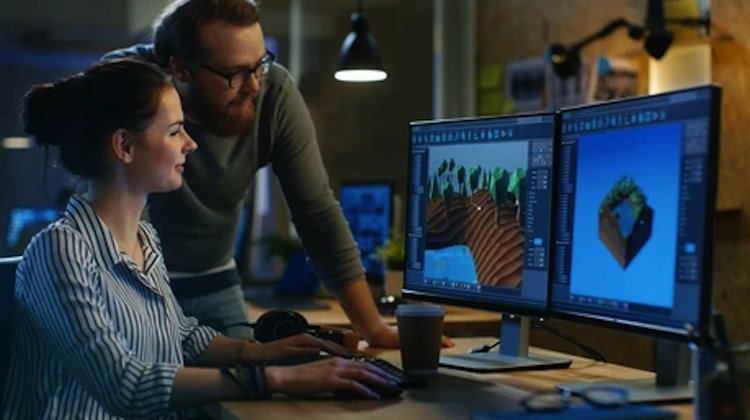
How to start learning game development?
What is Game Development?
Game development is far more than mere developing video games. Let’s see what it looks like.
Game development starts with the art of visualizing an idea into reality. Then comes the plot, characters, defining milestones, designing UI, developing code, audio effects, testing and publishing.
All of these systematic steps are followed to develop a game. Game development can strain your financials. Most commercial level games are backed by gaming agencies or investors.
The initial phase of your learning curve does not require must capital investment. However, if you aspire to be an independent game developer make sure the financials to cover production are in sight when the time comes.
What are the Basic Modules of Game Development?
Before learning about making a game in java (find more about this here), let’s understand the building modules.
The Idea
Any great game is built on a great idea. No matter if you’re not confident of it yet. Get a few reviews and get to its execution.
The Plot
Make sure the plot is engaging enough for the players to stick around.
The Characters
Define the characters well if your plot has any.
The Visual Aesthetic
The time we’re living in can make you a winner from a loser if your aesthetics are appealing enough.
UI/UX
Great UI/UX is a big hook in video games. If you can’t interact with the players well they’re likely to put off very soon.
Back End Development
The back end development is the actual implementation of your plot. Optimization and smooth implementation will minimize glitches in future.
Audio Effects
Audios have everything to do with adding life to your visuals. Working out on sounds can be a real “game-changer” for your video game.
Product Completion
You can never be sure of the end product until it’s complete. That’s the prime reason for recommending a “stupid start” to game developers. Starting a wonderful game is not more valuable than accomplishing a basic version of pong.
Publication and Promotion
If you’re a part of a gaming studio, this won’t be your part to worry about. However, if you’re an indie developer you got a whole new dimension waiting for you. It’s time to use research skills or delegate the task if you have the possibility to.
How to Get Started?
It’s time to dive right into the game development journey.
It’s your first game, not your dream game
This is your takeaway for the first few games. Your first few games are not going to bring you any bucks, so focus on learning!
We all have a game or some idea we’re so passionate to work on. But behold! It’s harder to chew bigger bites when you’ve not even grown your baby teeth. Working with complex functions at this stage will get you stuck and exhausted.
This over-ambition can cause you to dislike the domain altogether. Hence, your initial projects should not be more than a couple of functionalities.
Are you confident about the basics?
Before building games, ask the question above to yourself. It’s a good idea to start with the fundamentals of programming, OOP, data structures and algorithms.
Additionally, you can classify it into classes, objects, methods, data structures, collections, algorithms, exception handling, file handling (I/O streams) and optimization etc. Having a firm foundation will keep your boat sailing in complex projects.
Are you consuming your resources rightfully?
Searching for authentic and useful content online can be time taking. But here’s a suggestion that has impacted the lives of many. Having a habit of following a Java Programming Blog will subtly mature your programming practices. You will be able to see a clear difference before and after a few months of your journey.
Develop your First Game
It’s time to get your hands dirty in code. For the first few games, you can skip the formal aesthetic experience and audio effects etc. Rather, we recommend you develop the complete functionality of the game.
Completion over-rules UI/UX a big-time here. So stop playing around with excuses. You can’t possibly launch a commercial game when you’re not committed to a basic game.
Did you launch your first game?
The experience you’ll attain after completion of the first game will be one of its kind. You will have a clear picture of the expected challenges and the bumpy road ahead. After you develop your first game, make an effort to release it for real users.
Don’t be afraid of the criticism, feedback or bugs you might receive. It will expose you to the upcoming problems of substantial projects in future.
Conclusion
There’s no standard way of learning a new skill. However, that was our generic template to get started. We hope it helped you build an insight. Good luck and happy learning!


